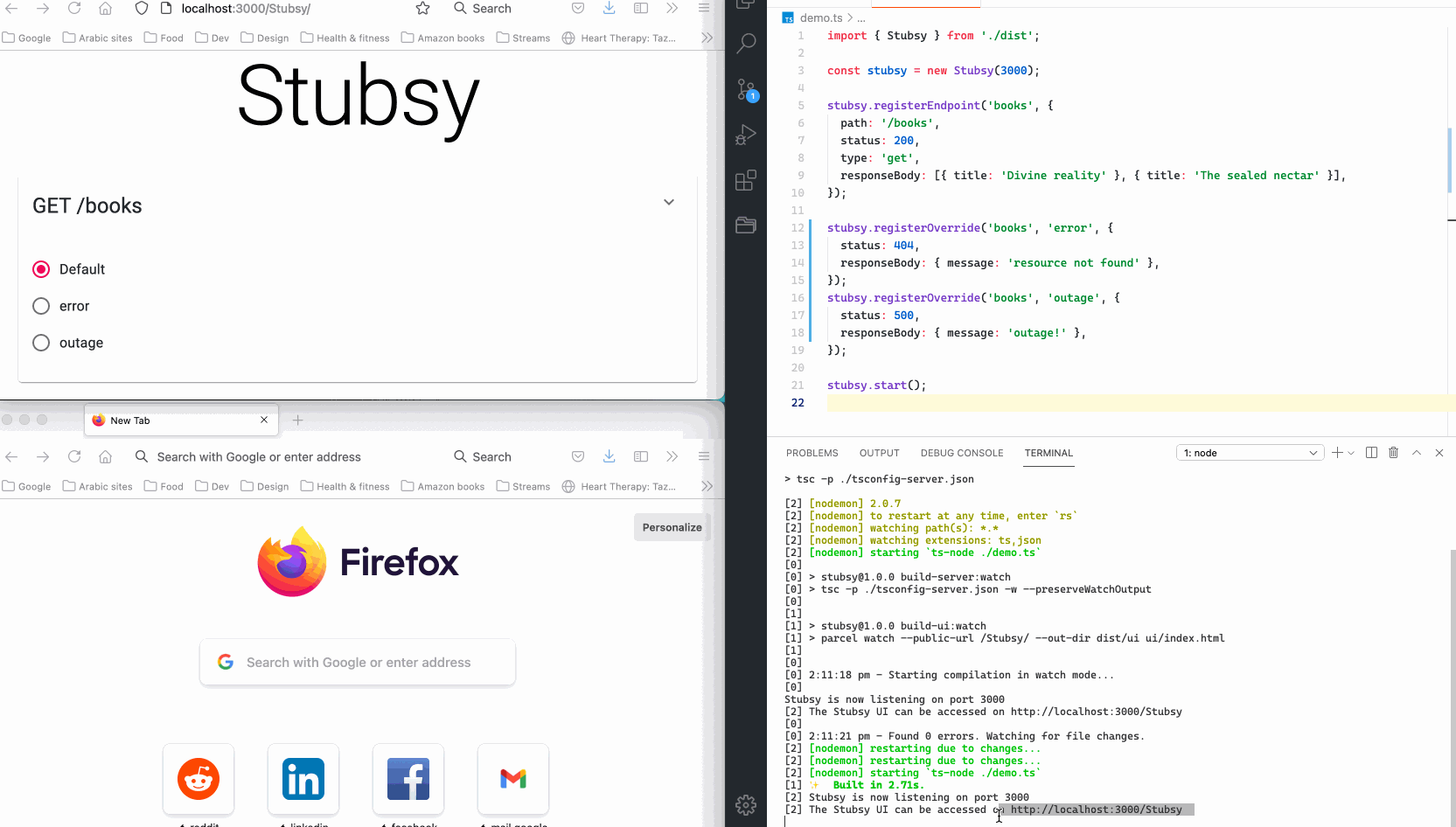stubsy v1.3.4
Stubsy
Stubsy is a Node server built using Express. Its main goal is to allow
developers to easily set up the server but more importantly change its
behaviour after launch. This can be useful to test how the UI behaves
when an endpoint's response is 404 instead 200 for example.
Stubsy ships with a UI to show the set up of the server and allow changing endpoint's behaviour.

Installation
npm install --save-dev stubsyUsage
Definitions
Endpoint
An Endpoint is REST endpoint, that is set up with a default
behaviour. An endpoint's behaviour is defined as follows.
type EndpointBehaviour = {
path: string; // the route at which the endpoint is accessed
responseBody: unknown;
status: number;
type: 'get' | 'post' | 'put' | 'delete' | 'patch';
delay?: number;
};Note: the path field can be any valid
Express path.
Override
An Override is an overriding behaviour for an Endpoint to alter its
response. The override behaviour is defined as follows. The path and
type of the endpoint cannot be changed in an Override.
type OverrideBehaviour = {
responseBody: unknown;
status: number;
delay?: number;
};API
new Stubsy(portNumber)
Creates an instance of Stubsy.
portNumber\<Number>: the port for the server to run on
stubsy.app
The underlying Express app. Use this instance variable to add more endpoints if needed and to start the server.
stubsy.registerEndpoint(endpointId, endpointBehaviour)
Registers endpoints to be accessed on the server.
endpointId\<String> required: a unique identifier for the endpointendpointBehaviour\<EndpointBehaviour> required: the endpoint's behaviour
stubsy.registerOverride(endpointId, overrideId, overrideBehaviour)
Registers override behaviour for a previously defined endpoint.
endpointId\<String> required: the id of the endpoint to register an override foroverrideId\<String> required: a unique identifier for the overrideoverrideBehaviour\<OverrideBehaviour> required: the override's behaviour
stubsy.activateOverride(endpointId, overrideId)
Activates the specified override on the endpoint.
endpointId\<String> required: the id of the endpoint to activate the override onoverrideId\<String>: the id of the override to activate. If omitted restores the override to the default behaviour.
stubsy.start()
stubsy.start()Starts the server on the port number specified.
Example
// server.js
import { Stubsy } from 'stubsy';
const stubsyPortNumber = 3000;
const stubsy = new Stubsy();
stubsy.registerEndpoint('films', {
path: '/films',
status: 200,
type: 'get',
responseBody: [{ title: 'Inception' }, { title: 'Tenet' }],
});
stubsy.registerOverride('films', 'error', { status: 404, responseBody: {} });
stubsy.registerOverride('films', 'outage', { status: 500, responseBody: {} });
stubsy.activateOverride('films', 'outage');
stubsy.app.listen(stubsyPortNumber);